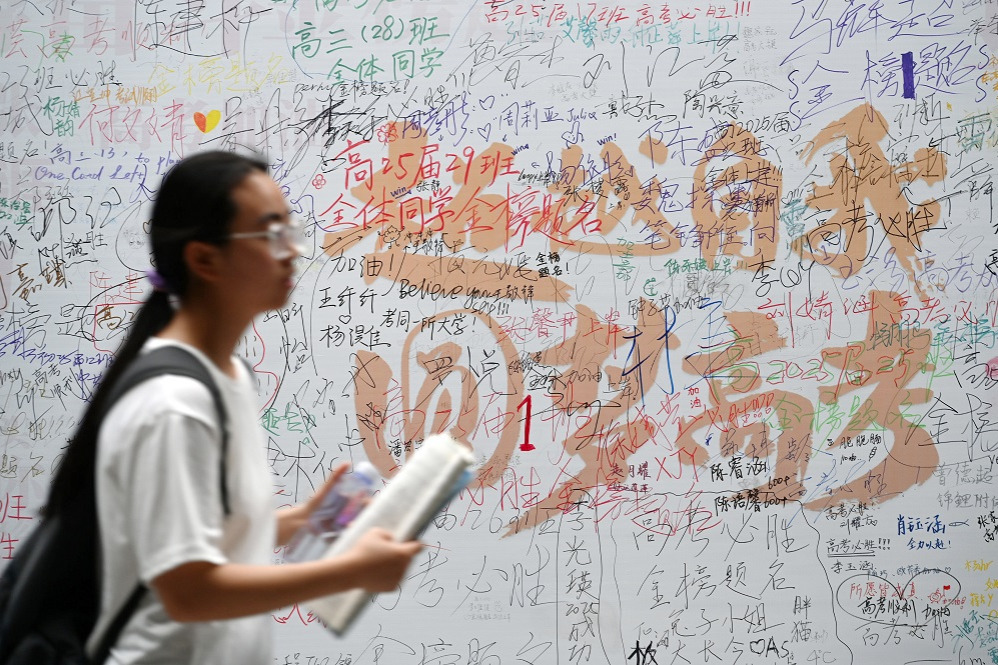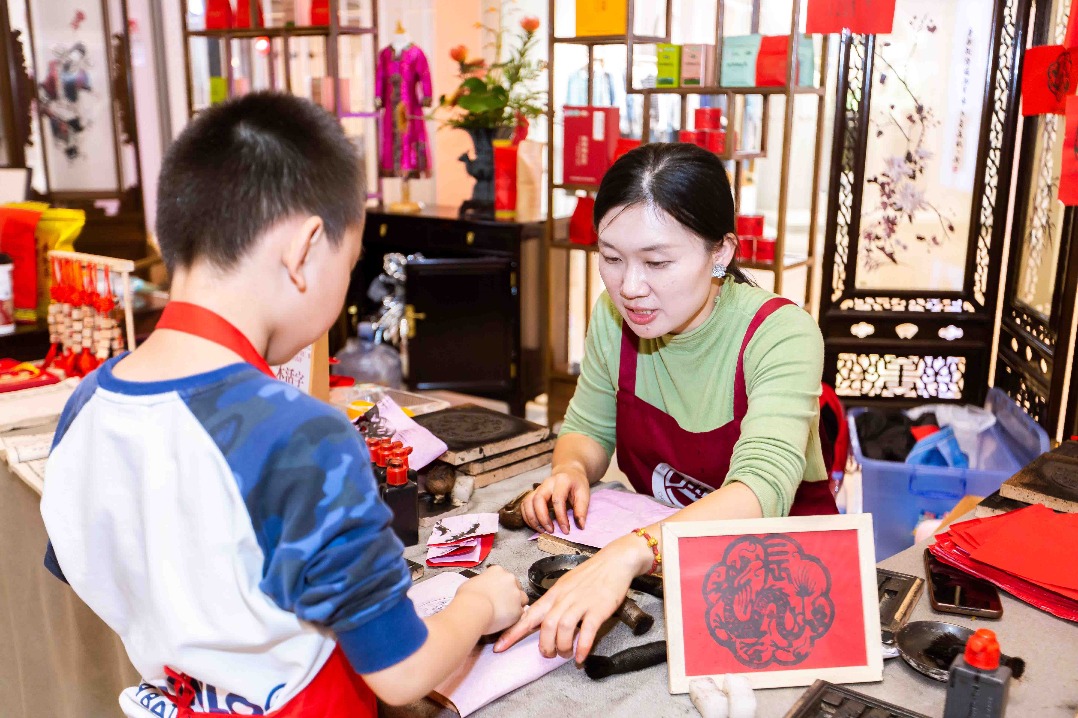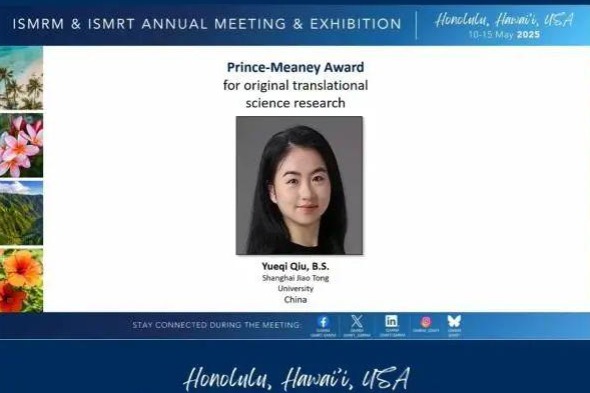AI helps keep candidates safe, honest

As the 2025 gaokao, China's national college entrance exam, got underway on Saturday morning, a volunteer in Shenyang, Liaoning province, helped wheelchair-bound student Wang Zhenyu reach the test room safely by coordinating with police to open a green channel — a small gesture reflecting nationwide efforts to support examinees.
While students concentrate on doing their best, authorities have made every effort to ensure that the test is conducted safely and is fair for its 13.35 million test takers nationwide. In many places, artificial intelligence technology is introduced for this purpose.
In Benxi, Liaoning, every gaokao exam room is monitored by a real-time intelligent surveillance system that automatically flags irregular behavior — from whispers and frequent glances between students to inattentive proctors — to reinforce discipline and fairness.
AI-powered monitoring systems have also been adopted in other provinces, including Jiangxi, Hubei and Guangdong, enabling real-time surveillance, behavior analysis and early alerts. By detecting irregular behaviors accurately and without human input, the advanced technology eases the burden on exam staff and strengthens the fairness and integrity of the exam itself.
These advanced measures are playing a vital role in supporting this year's gaokao. Authorities and communities nationwide have introduced a wide range of initiatives to ensure the exam is conducted safely and fairly, addressing challenges from technological risks and environmental conditions to the physical and mental well-being of students.
Ensuring fairness
On May 28, China's Ministry of Education announced strengthened security measures for the 2025 gaokao, emphasizing technological safeguards. Upgrades include stricter entry checks, enhanced screenings for devices such as phones and smartwatches, radio signal blocking at all exam sites, and the expanded use of intelligent surveillance and inspection systems to strengthen the exam security network.
Upgraded security gates have become a key line of defense in ensuring a fair exam environment in Liaoning. At every test site, students are required to pass through two intelligent security gates capable of detecting small metal objects, including mobile phones, smartwatches, smart glasses, hidden earpieces and other high-tech devices that could be used to cheat. If an alarm is triggered, teachers follow up with handheld metal detectors.
"Cheating technologies are evolving every year, so this year's entry screening process is stricter than ever," said Liu Yang, principal of Benxi Senior High School. "At the school gates, students are reminded not to carry prohibited devices, and lockers are provided for safe storage. On exam days, dedicated staff also inspect key areas such as walls, restrooms and bins to prevent any form of external information transmission."
Biometric verification has also become a standard part of the exam security process. At entrances, candidates undergo facial recognition, fingerprinting or iris scans to prevent people impersonating exam candidates from entering. Identity checks are conducted multiple times before, during and after exams, each taking just seconds to complete.
In addition, national radio authorities are actively monitoring test centers and surrounding areas for suspicious signals. By identifying and blocking unauthorized wireless communication, they help prevent cheating via electronic devices.
Strong social support
Beyond technological safeguards, many regions have taken additional steps to create a calm and supportive exam environment for candidates. These include postponing performances, temporarily closing libraries, cultural centers, museums and sports venues, and adjusting government and business office hours.
In Anhui province, the Anhui Huangmei Opera Theatre has suspended all performances from June 5 to 9 to minimize noise near exam venues. Similarly, cultural institutions in the provinces of Jiangsu, Fujian and Henan have postponed street shows, traditional lion dances and puppet performances to ensure a quiet atmosphere for students.
To ease road traffic and ensure timely arrival, multiple cities have implemented tailored measures such as delaying office start hours and encouraging carpooling or public transit. Traffic police have set up priority lanes and are ready to escort students caught in traffic, ensuring every student reaches their exam site on time. In Benxi, students can even book taxis marked with "gaokao free ride" stickers by phone, or by hailing them on the street and showing their exam admission pass.
To shield students from adverse weather, Beijing 101 Middle School has set up rain-and-sun shelters, stocked over 200 umbrellas and ensured first aid support with on-site medical staff. Inside its exam rooms, air conditioning, silent fans and purified drinking water create a comfortable setting.
Beijing has also introduced personalized support measures for students with special needs, including the provision of exam papers in Braille and enlarged print, as well as separate testing rooms.
These nationwide efforts reflect not only the logistical scale of the gaokao but also the deep societal importance attached to it. Behind every quiet exam room or smooth ride to a test center is a collective commitment to ensuring fairness, opportunity and hope for the future.
- AI helps keep candidates safe, honest
- Crowds can 'trade' at beer exchange in Qingdao
- Findings of first autumn Antarctic expedition released
- Long-term push for green transformation reveals Guangxi's natural splendor
- Liuzhou tops water quality list for 5th year
- Where tea blends with culture and tourism





































